Pros and Cons of SEO
Last updated: July 9th, 2025
This article is focused on smaller (less than ~100 employees) engineering and software development companies, but a good portion of these thoughts apply more broadly as well.
SEO is basically a mechanism to try to position yourself ahead of time for when someone wants to learn about something, or wants help with something. That concept is pretty cool.
A typical primary goal with SEO is to try to show up with a particular ranking in organic search results in various search engines.
That goal is somewhat flawed. Not because it’s totally wrong, but rather because it’s incomplete (more on that in the cons section).
To be blunt: SEO is hard. If you’ve been told otherwise, you may have been misinformed, or at least been provided outdated information.
Some pros and cons of SEO:
SEO Pros
- It encourages you to add clarity around what you really want your business to be about, and what customers you want to help. Not all at once from the outset, but over time, in an iterative fashion. There’s a learning process.
- It helps you add clarity when working with your customers going forward. You get better at helping at a deeper level the more you can say ‘no’ to those that don’t quite fit your preferred customer profile.
- If you’ve got a perspective that’s engaging to the people that want to pay you money to do what you do (i.e. customers 😊), you can grow your customer base mainly by letting your uncommon perspective out.
- While there will often be a decay rate to your effort on a particular topic, it’s usually a slow fade, as opposed to the more impulse-response nature of social media or the on-off nature of paid advertising.
- You can use it as a foot in the door to increase interest in other topics that your visitor either might not be searching for or for scenarios where they wouldn’t necessarily start at your site.
- If you’re really engaging, you can use it as a foot in the door to introduce people to other topics that are even further away from the original topic of interest.
- It’s a potential way to broaden your geographic reach.
SEO Cons
- The goal of trying to rank well for certain topics can lead you astray. Any given topic may not be worth your time. There may be particular topics that your company knows very well. That doesn’t necessarily mean you should try to rank for them. Topic selection is an important piece of the puzzle.
- SEO lives in the land of low probabilities. This isn’t exclusive to SEO by any means. Most marketing methods live in this realm. It just presents differently with SEO. There’s a lot of guess work and a lot of noise to sift through to find patterns. Search engine companies (e.g. Google) tend to be pretty cagey about sharing useful information.
- It evolves very quickly. It’s not a static environment. Some things you might have done a couple years ago, you’d either do differently now, or you might not even do at all. Search engine algorithms evolve significantly. And it’s starting to appear that other search engines (DuckDuckGo, Brave, Bing) may gain ground over the coming years, so it probably won’t be just the Google show. That’s a lot of info to try to keep some sort of pulse on.
- There’s a massive amount of information out there on the topic. That’s partly because it changes so quickly, but even more so because what people tend to call the “search algorithm” is really several extremely complex algorithms that each play their part in the process to go from a user entering a search term to providing solid search results in the SERP (Search Engine Results Page). You can end up going down quite a few rabbit holes.
- You’ll be hard-pressed to outsource the core content creation aspect. Why? Because it’s your brain (or the brain of several SMEs) that you’re trying to leverage to build trust. That doesn’t mean you can’t get outside help to facilitate various aspects of content creation, it just means that at its core, it needs to be your company’s thoughts.
- It’s often a very long road, especially when you’re just getting started. If you think you’re going to hop into SEO and see results in the near term, you’ll probably be sadly mistaken. Even once you know what you’re doing, it’s a very long road. How long? There are too many variables to say with any confidence. Be cautious when someone tells you they saw results in a few months. There’s a reason for that. They may not even know that there was a reason for it, but there likely was, and it likely had at least something to do with things that happened prior to those few months.
- You may start attracting people that you don’t mean to. They reach out. Then you put energy into nicely turning them away. There are ways of encouraging self-disqualification, but this takes effort, and some people that you didn’t want to will still reach out anyway.
A few SEO examples in action
Here are a few examples of search topics ranking over time.
There are unspoken realities abound in this data. Take all of this with a large grain of salt.
You can see the rise to the top isn’t always that pretty, it can take a long time, and it doesn’t always last.
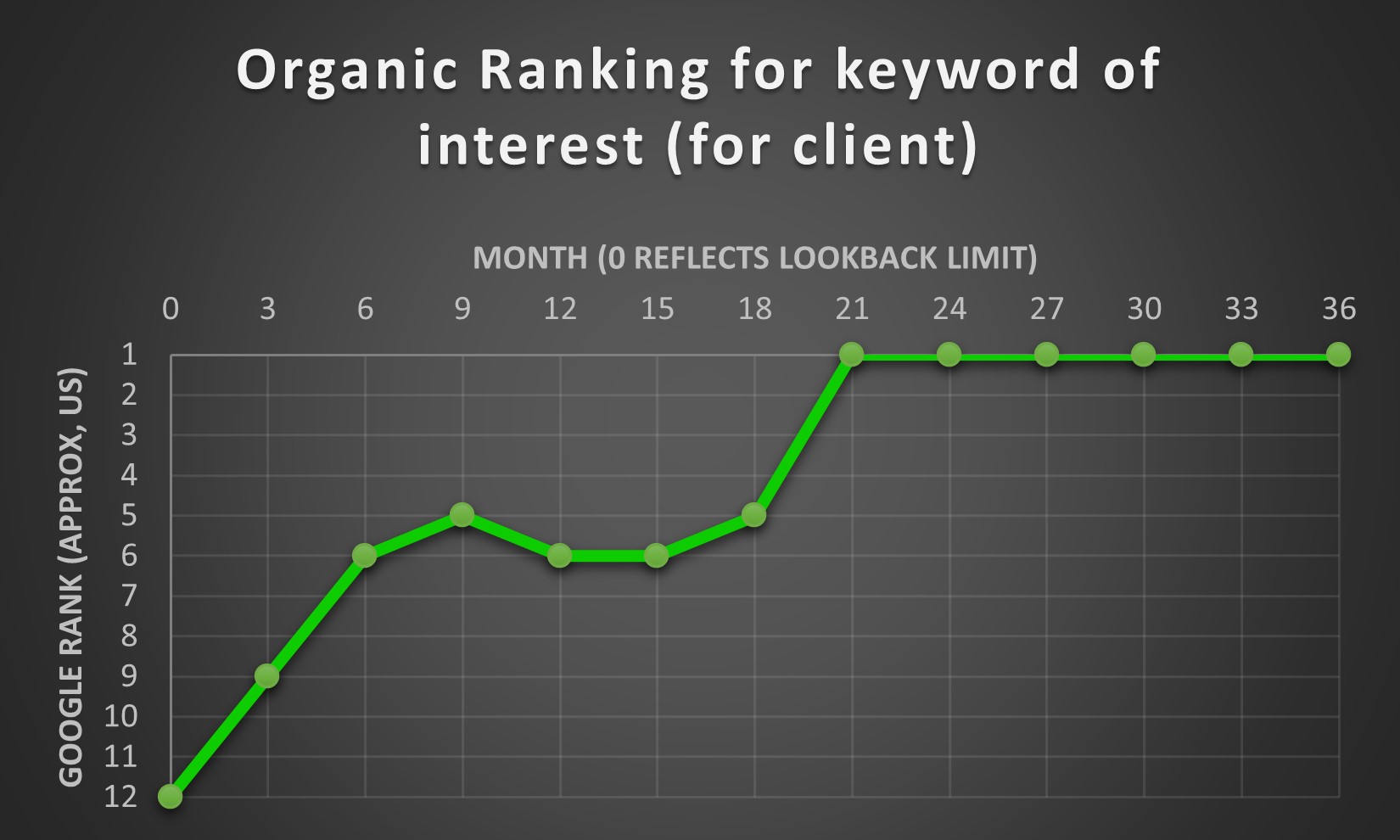
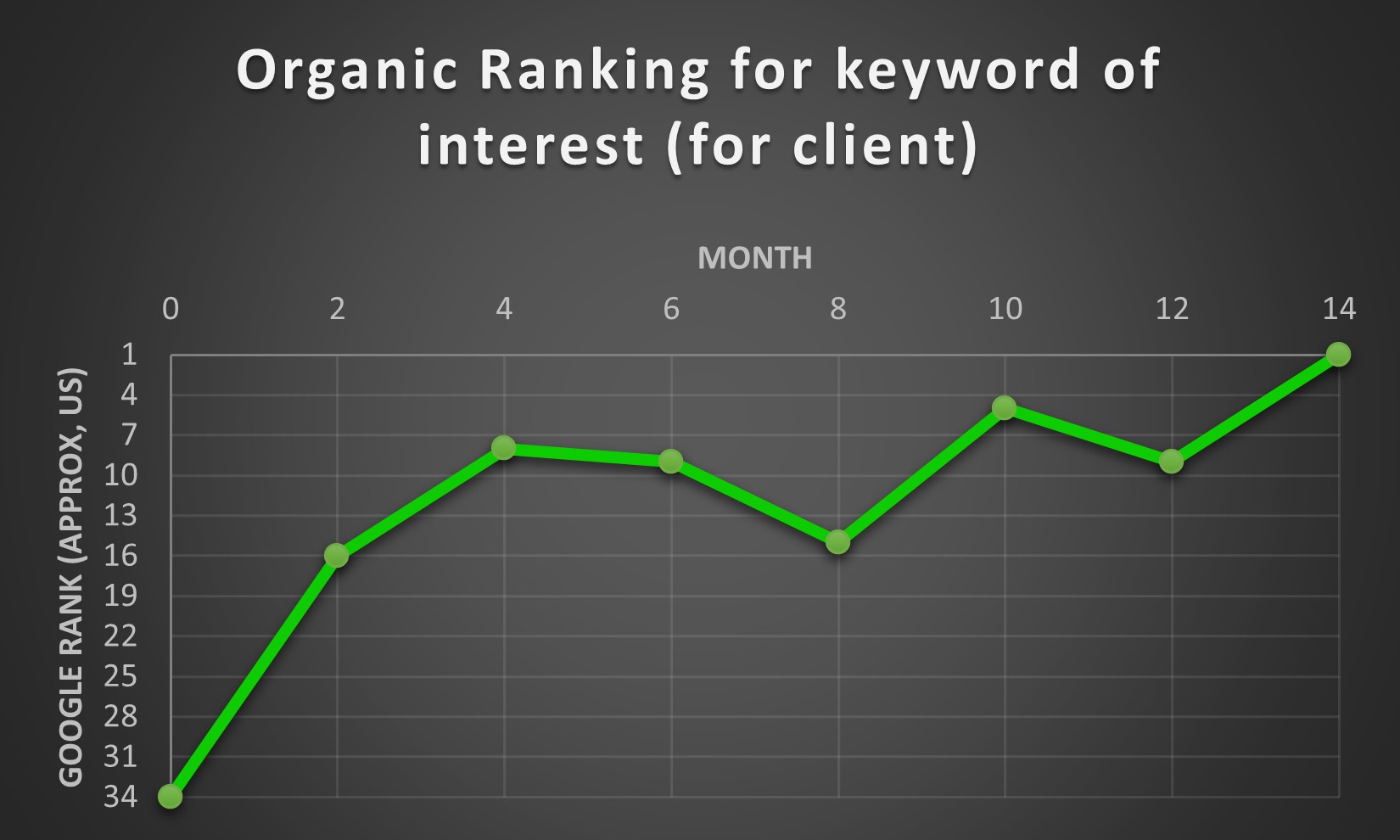
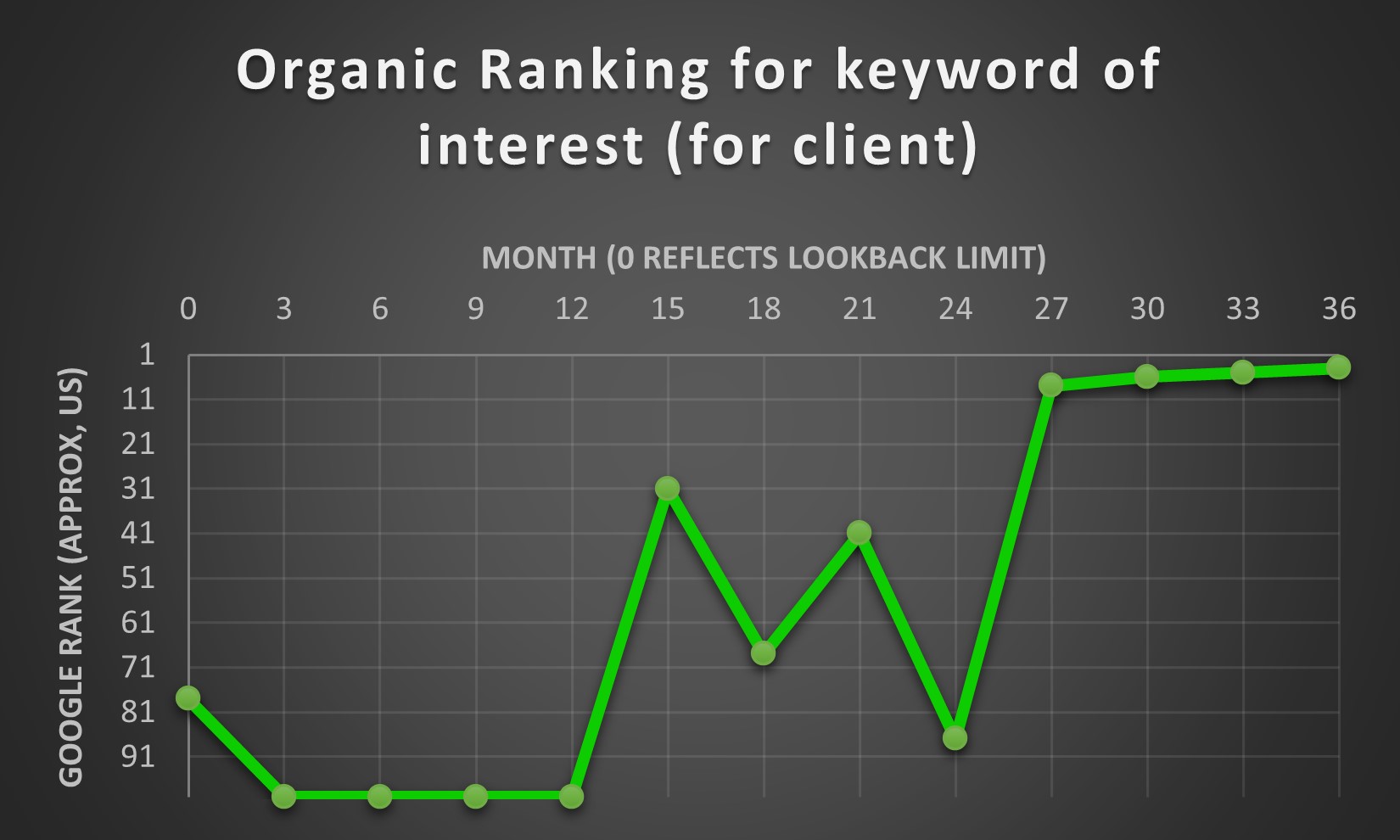
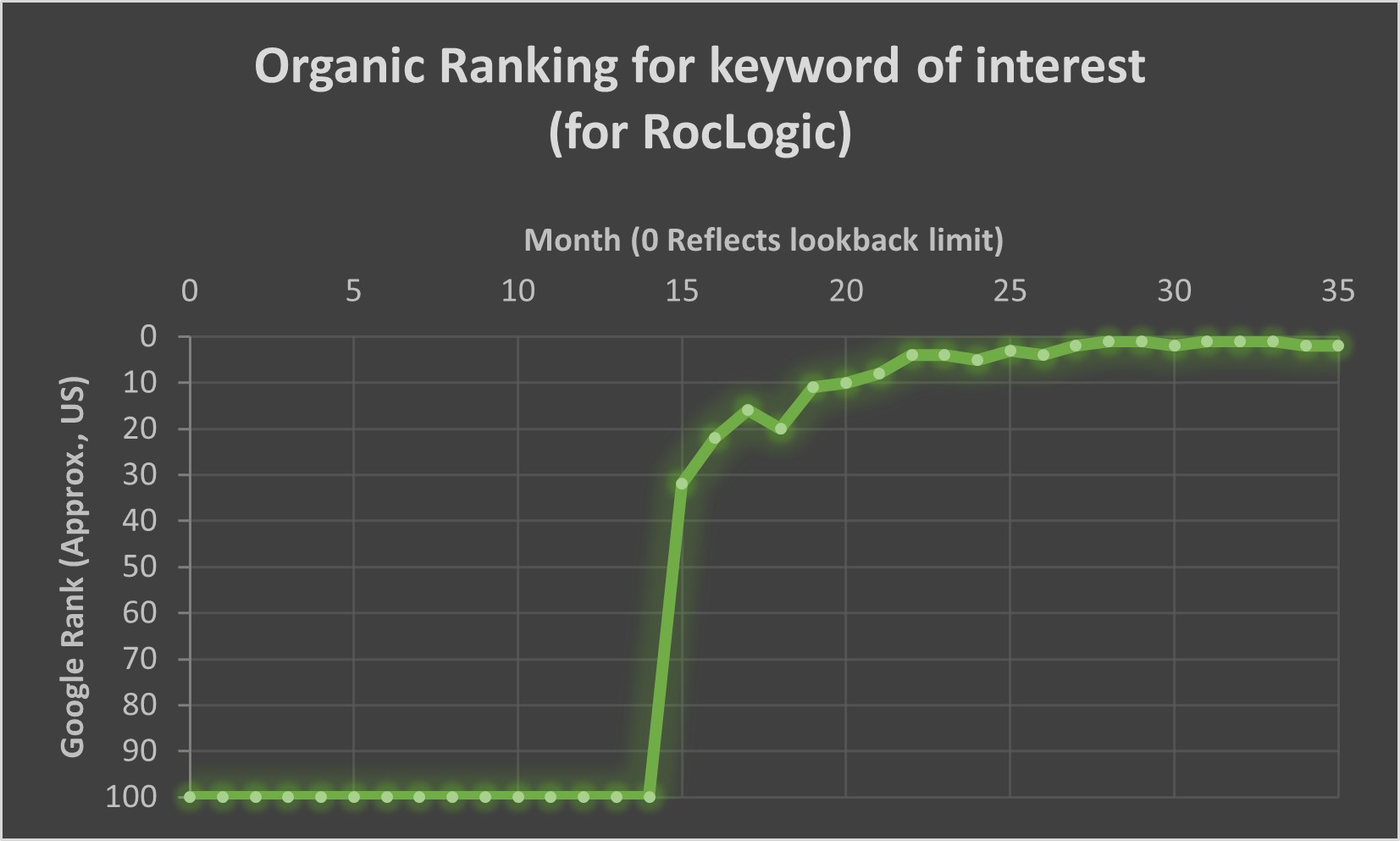
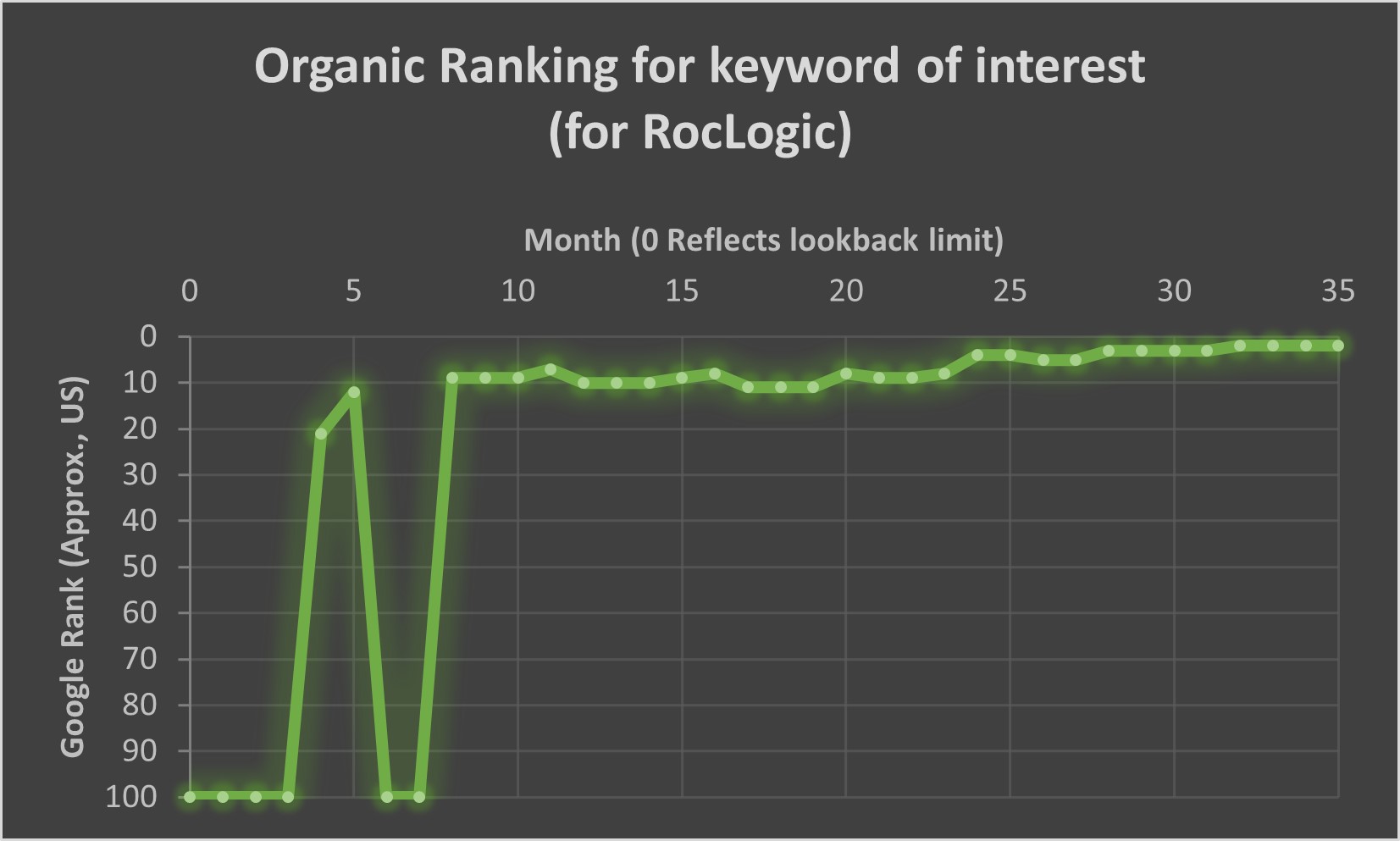
Alternatives to SEO
Keep in mind that part of doing good marketing means not putting all your eggs in one basket.
There are certainly several other methods worth considering that could compliment your SEO efforts:
- Paid search
- Inbound
- Account-based engagement
- Partner channels
- Selling to your existing customers
- Referrals
Next Steps
It takes time to get comfortable with this marketing method.
What does that mean?
It means you start by dipping your toe in the water.
That means you need:
- A decent website structure to build content on top of.
- One or a few niches to start exploring / experimenting with.
- To start creating good content.
If you want help with some of this, feel free to reach out for a chat.
In learning mode? Check these out:
- SEO for engineering
- Pros and cons of paid search
- Updating your website – good reasons and bad reasons to overhaul
- Pros and Cons of Inbound Marketing
- Pros and cons of content marketing
- The problem with marketing plans for small B2B companies – and what to do instead
- How to Get Started with Digital Marketing
- Inbound Marketing – what’s the risk of waiting to get started?
